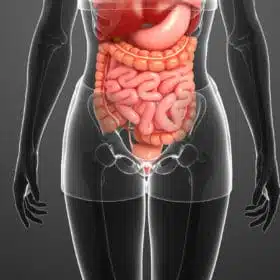When the spring sun has replaced the cold and gray winter weather, many people start thinking about the upcoming vacation days at the beach. Accordingly, people start looking at their bodies and criticizing the fat deposits they have put on their hips and legs during the winter. The fitness wave begins and people start their sports programs for the coming summer. But now many questions arise. How should I organize my training so that I can also burn fat effectively? When should I start and can I really keep it up in the long term?
Unfortunately, there is no one-size-fits-all answer to these questions, as the answers also depend on a person's physique and lifestyle. Below we have put together four important points that relate to both training and nutrition for effective fat burning. If you strictly adhere to them, you can be sure that you too will be able to show off your slim and athletically toned body on the beach in summer.
Fat burning: How much fat should I lose?
As you probably already know, you need to burn around 7,000 calories to get rid of 1 kilogram of body fat. This figure certainly does not take into account the individual metabolism of the person, which is decisive for how quickly and intensively body fat can be burned. However, it is a guideline for anyone who really wants to get rid of their fat. If you want to lose weight, it is important that you lose as much fat as possible. People are usually very proud when they have lost a lot of kilos. However, the loss of body fat is decisive for the definition of the muscles, as you normally always lose a lot of water and muscle mass through dieting. Another guideline for a diet is the loss of one pound of fat per week. This requires a calorie deficit of 500 calories per day. If you want to lose about 5 kilograms of fat for the summer, you should start your diet about two to three months beforehand. If you even want to lose 10 kilograms of fat, you will need about four to five months to reach your goal. Of course, a radical diet can help you lose weight much faster. But what's the point if you end up with the same body weight a few months later due to the yo-yo effect? Radical diets are a waste of time and energy.
Can I deal with obstacles and setbacks?
In life, there are not so many circumstances and situations that we can actually control as humans. However, body weight and physique are controllable. Everyone can always decide for themselves what they eat, how many calories they consume or what sport they do. You therefore always have control over how you shape and form your body. Control also means that you can prevent impending obstacles and setbacks at any time. Especially during a diet phase, unexpected life situations arise that often make it very difficult to continue the diet you have started consistently. Therefore, never allow yourself to be dominated by negative thoughts. If you are going on a business trip, for example, you can counteract a stop in your diet with protein powder and prepared meals. If you learn functional training without equipment, you can easily train in any hotel room. And the cheat day also allows you to dine comfortably in a restaurant with your business friends without feeling guilty. With a routine plan, you can control everything, even when dieting!
How does my body react to a calorie deficit?
When you go on a diet for the first time, you don't yet know how your body will react to a long-term calorie deficit. It is therefore important that you listen to the signals your body sends during the diet phase. Some people feel well with significantly fewer calories, while others feel much worse if they cannot get enough energy from food. Possible reactions of the body are emerging cravings, prolonged fatigue and lack of motivation, a significant loss of muscle mass and insomnia. There are now several ways to counteract these warning signals. In any case, it is important to consume a lot of protein during the diet, as the body always goes to the protein depots first before using the unwanted fat as an energy source. Sport and strength training also serve as an important compensation for the loss of muscle mass during the diet phase. In addition, the energy expenditure from strength training also ensures healthy sleep, which is particularly important for getting rid of body fat. Fat can only be broken down and muscles built up when the body is at rest, which is why long and intensive sleep is particularly important during a diet phase.
Am I mentally strong enough for the diet?
Dieting requires a great deal of physical and mental discipline, which not everyone can maintain in the long term. The diet phase requires a consistent plan for the diet and the sports program, which must be adhered to with discipline. The purchase of certain foods, the preparation of individual meals and a positive attitude to everyday life require an iron will. The body is clever and does not want to give up its usual sources of energy. That's why it keeps tempting you with new temptations that you often can't resist. Oh, I could eat a burger today or that cheesecake looks fantastic. I only live once, so I can have a beer today. If you give in now, you've actually already lost. But there is a trick you can use to cleverly avoid all these temptations. Simply allow yourself one cheat day a week on which you can eat everything that is forbidden on the other six days. This day often works wonders, because now you lose the fear of failure as you are allowed to sin on cheat day. With this mindset, you practically only work towards the cheat day on the six diet days and everything becomes much easier. You can also replenish your glycogen stores on cheat day so that you have new energy for the coming week.










